Prison Dharma Grows and Deepens in Washington
Written by: Sandra Kipper
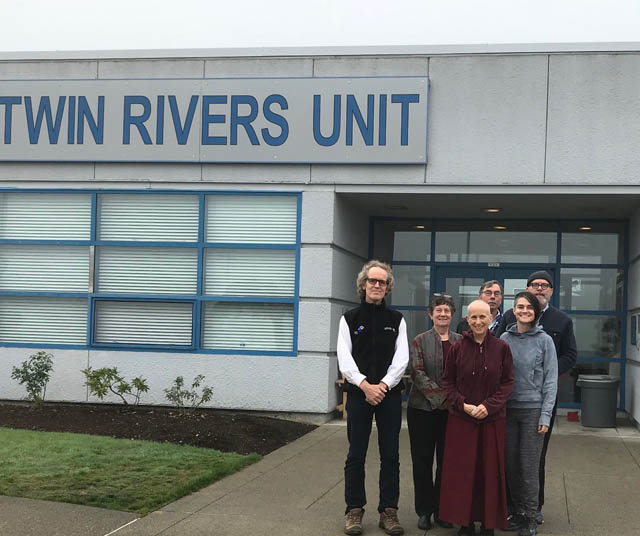
Volunteers at Twin Rivers Unit in October. 2018. From left to right: Jordan Van Voast, Jean Berolzheimer, Venerable Thubten Chodron, Jack Buce, Colette Janning, Eric Schmidt.
Photos by: Sandra Kipper, prison staff, Rigdzin Tingkhye, Amanda Zaski
More people serving time in Washington state prisons are practicing the dharma, and doing so more deeply, as a growing number of volunteers offer a widening array of options.
The increasing activities include more people taking refuge, more people doing retreat, and more people studying from the growing Buddhist library collections, and with the guidance of visiting Buddhist teachers.
These programs are very worthwhile, and are making a difference in the lives of people here in the Northwest. We welcome new volunteers to maintain and expand our Buddhist meditation programs.
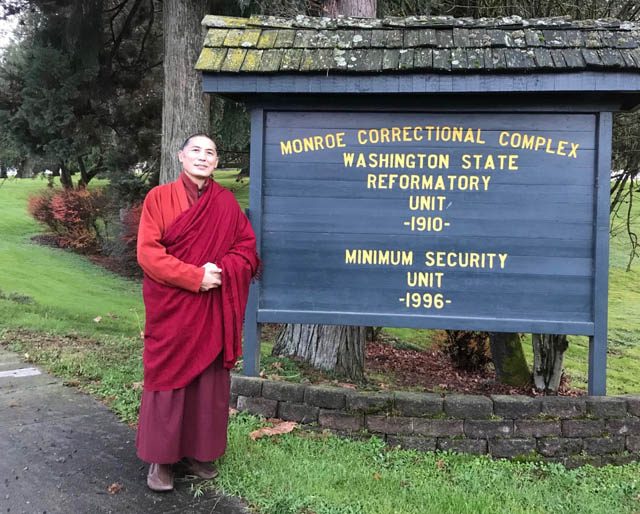
When inmates were asked at a gathering one day, “Why do you come to this group?” the majority of them simply answered, “Love.” One man, who has been supported in dharma by Volunteer Program Supervisor Amy Darling for over 12 years, said, “You visit more often than our own families. You come and you keep coming to sit with us and listen to us.”
Buddhist teachings and practices are currently offered to men at three prison units within the Monroe Correctional Complex in the town of Monroe, north of Seattle. These are the Washington State Reformatory (WSR), the Twin Rivers Unit (TRU) and the Minimum Security Unit (MSU).
Buddhist practice helps the men build their inner strength, self-trust and resilience, with the goal of lowering the chance of returning to prison after their release. This has a positive impact on communities in the Pacific Northwest.
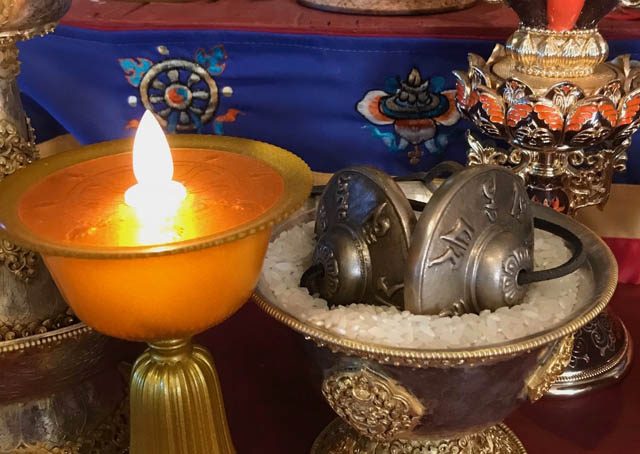
Buddhafest is an annual celebration during which inmates have the opportunity to share their spiritual practice with family, friends and volunteers. This year’s Buddhafests at WSR and TRU included song, dance, meditation, mandala creation made of colored rice, and a ritual to celebrate the Buddha’s birth by bathing a Buddha statue and by weaving flowers into a bamboo pagoda.
This year one inmate stood up, and addressed 100 fellow attendees gathered for WSR’s Buddhafest.
“I practice Catholicism to find God,” he said. “I practice Buddhism to find myself.”
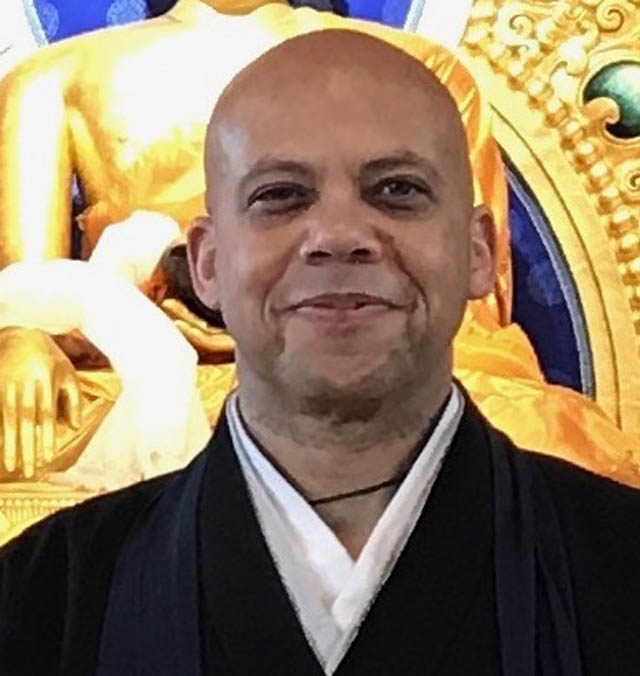
Growth in prison Buddhist meditation programs
Buddhist volunteers at Monroe Correctional Complex include people from many Buddhist traditions, including Zen, Chan and Tibetan Buddhism. Volunteers come from many different sanghas, including: Tahoma One Drop Zen Monastery, Seattle Soto Zen, the Chenrezig Project, Pema Kilaya, Sakya Monastery of Tibetan Buddhism, Drikung Seattle, Chagdud Gonpa Amrita, and the International Bodhisattva Sangha.
While some men join the meditation group out of curiosity, to discover what meditation is and how they might benefit, other inmates are serious, long-time practitioners.
During breath meditation one day, a long-time practitioner spontaneously began doing tonglen, an advanced practice of taking in others’ suffering, and sending out loving kindness. While many people are hesitant to do this practice, this inmate pointed out that giving love, and relieving others of suffering, is the whole idea of bodhicitta.
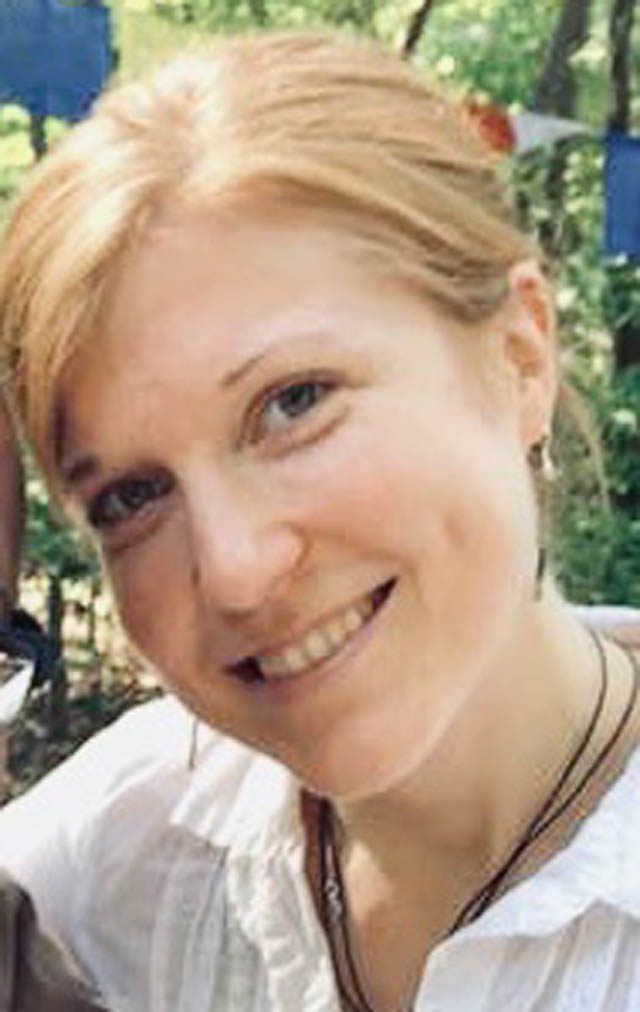
Through their individual dedication to meditation, personal discovery, and their shared Buddhist practice, the men report a variety of benefits. They develop resiliency, build trust and confidence in themselves and each other, and discover tools to manage the disappointment of things being different than they would choose, and the challenges of life in prison. Some actively cultivate compassion, generosity toward others, patience and kindness.
Two volunteers, Amy Darling and Mark Winwood, are also providing Buddhist chaplaincy visits to inmates who request individual counseling.
In terms of deepening practice, silent meditation retreats were offered four times during 2018 at MCC. In addition two dharma films were shown: The Tibetan Book of the Dead at TRU, and For the Benefit of all Beings, The Extraordinary Life of His Eminence Garchen Rinpoche, at the Minimum Security Unit (MSU).
Volunteer Eric Schmidt, from Seattle Soto Zen, has in addition also introduced haiku poetry to the men, and has invited them to write about their prison experiences.
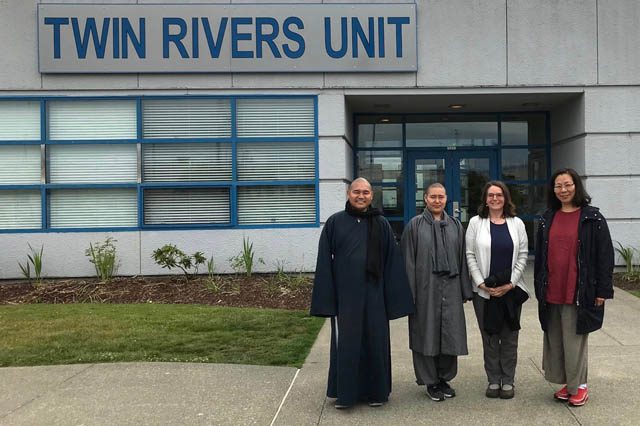
Buddhist teachers shine light for inmates
Many wonderful Buddhist teachers visited MCC this year, including: Lama Samten Bryn Dawson, from the Karma Kagyu tradition; Reverend Seiho Morris, a Rinzai Zen practitioner who is involved with Buddhist recovery work; Venerable Thubten Chodron, founder of Sravasti Abbey; and Dza Kilung Rinpoche, founder of Pema Kilaya.
After Dza Kilung Rinpoche visited Twin Rivers Unit (TRU) in November 2017, one of his long-time students, Diane Berger, became a Buddhist meditation volunteer there to support the inmates with their dharma studies. Pema Kilaya, Rinpoche’s sangha on Whidbey Island north of Seattle, donated 26 copies of Rinpoche’s book, “The Relaxed Mind, a Seven-Step Method for Deepening Meditation Practice,” to the inmate group at TRU.
Berger visited the prison from December 2017 through June 2018 to teach the meditation series based on Rinpoche’s book, and continues to teach on occasion. Kilung Rinpoche returned in November 2018 for a second visit to TRU, and conferred refuge vows to an additional nine inmates.
After Venerable Chodron’s visit and dharma talk, nearly 20 inmates enrolled in Sravasti Abbey’s three-month “Retreat from Afar” program. This year’s winter retreat will focus on Vajrasattva purification practice, in order to clear negative karma, negative habit patterns, and obstacles to practice.
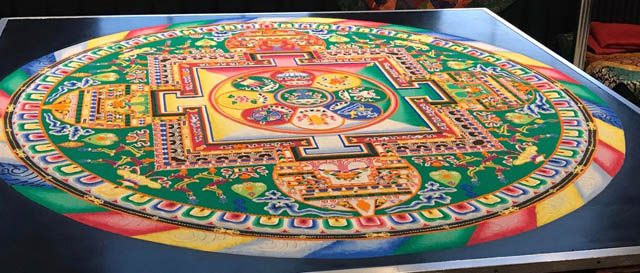
Community support
Venerable Xian Zhong visited MCC for the third year running in 2018. He is from the San Diego-based International Bodhisattva Sangha, and travels up the West Coast visiting inmates and teaching dharma in prisons in California, Oregon and Washington. His sangha also donates many dharma books, altar items and malas to MCC inmates.
The prison dharma program at MCC has received many books from the Northwest community, in response to last year’s request for donations. Also sangha members from the Chenrezig Project donated cash, helping make Buddhafest possible this year at TRU. The inmates truly appreciate these acts of generosity, and we would like to convey their gratitude to all of you who support their spiritual practice. The inmates benefit so much from community involvement, and the volunteers feel enriched by being of service.
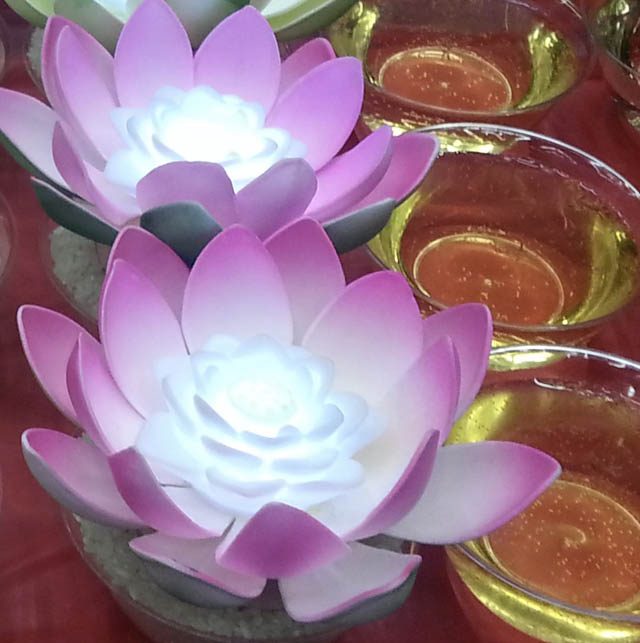
If you would like to get involved with the prison dharma programs at the Monroe Correctional Complex, donate malas or books, please contact sandrakipper@yahoo.com.
If you would like to make a cash donation to support prison dharma at MCC, please send checks to: Inmate Accounts, MCC, P.O. Box 888, Monroe, WA 98272. Checks can be made out to the 2955 TRU Buddhist Donation Account, or for WSRU, the 2955 WSRU Buddhist Donation Account.
Sandra Kipper is a member of Drikung Seattle, a dharma center founded by H.E. Garchen Rinpoche, in the Drikung Kagyu tradition of Tibetan Buddhism. She volunteers as a sponsor of Buddhist meditation programs at the Monroe Correctional Complex.
